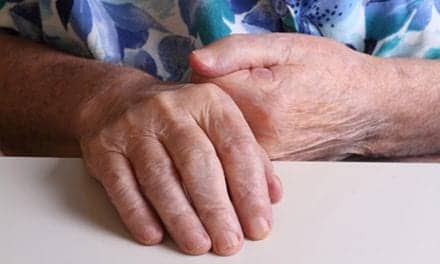NEW YORK (Reuters Health) – Following an acute ischemic stroke, thrombolytic therapy can be safe for some octogenarians, and the risk of symptomatic intracranial hemorrhage appears to be no higher than the risk seen in younger patients, suggest the findings of a new study.
"In experienced centers — I would say more than 50 treatments in patients below 80 years of age – I strongly recommend also treating older patients on a case-by-case basis," Dr. Peter A. Ringleb from Ruprecht-Karls-Universitaet, Heidelberg, Germany told Reuters Health.
Dr. Ringleb and colleagues analyzed the morbidity, mortality, and risk for symptomatic intracranial hemorrhage after thrombolytic therapy in 378 octogenarians, focusing on whether the risk-benefit ratio was higher in patients selected by MRI or by CT. These findings were compared with those of 90 acute ischemic stroke patients who were younger than 80 years.
Symptomatic intracranial hemorrhage occurred in 5.3% of patients under age 80 years, compared with 6.7% of octogenarians (p= 0.61), the authors report in the July issue of the Journal of Neurology, Neurosurgery, and Psychiatry
Among octogenarians selected for thrombolytic therapy by MRI, the rate of symptomatic intracranial hemorrhage was 0%, compared with a rate of 9.4% among those selected by CT.
The mortality rate at 3 months was significantly higher among the octogenarians (28.9%) than among younger patients (12.7%), the researchers note, and the rate did not differ according to MRI or CT selection.
Favorable outcomes were much more common among younger patients (41.8%) than among octogenarians (18.9%), and favorable outcome rates did not differ by MRI or CT.
"Our study confirms that thrombolytic therapy can be performed in elderly patients and in extended time windows without increased risk, especially if the patients are screened with multiparametric MRI," the investigators conclude. "However, this has not reduced mortality or increased favorable outcome."
"Further randomized trials should not exclude patients only because of their age, which is being done in the ongoing international stroke trial-3," the authors add.
J Neurol Neurosurg Psychiatry 2007;78:690-693.
Copyright Reuters 2007. Click for Restrictions




